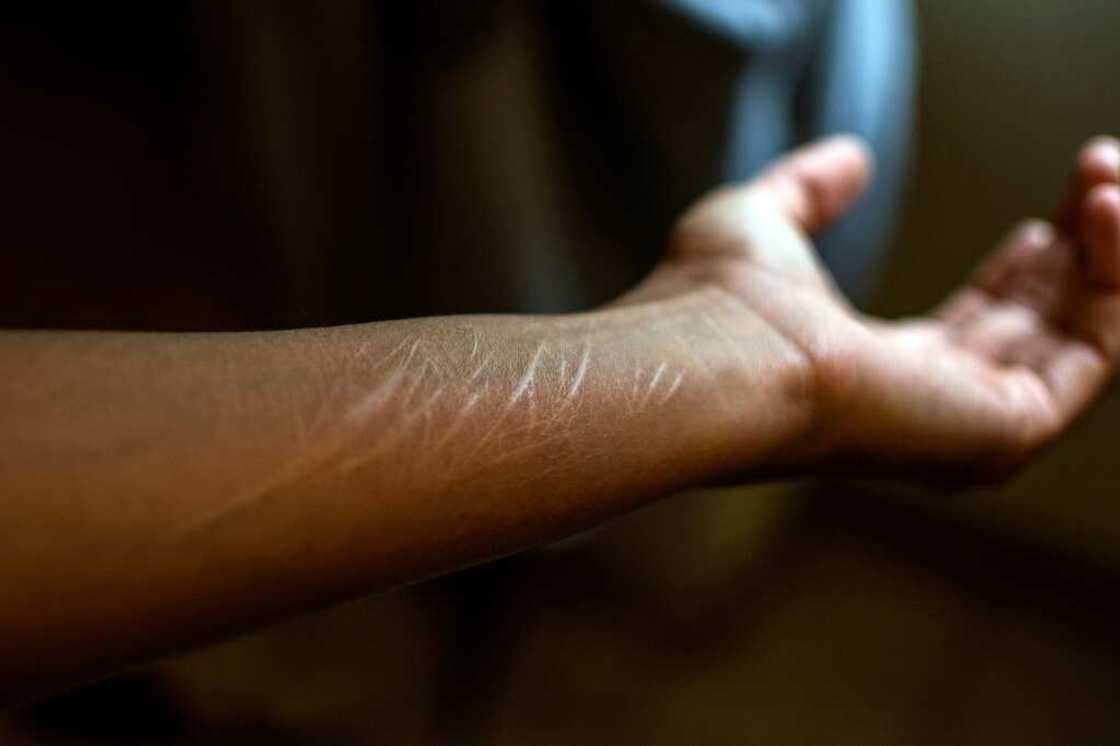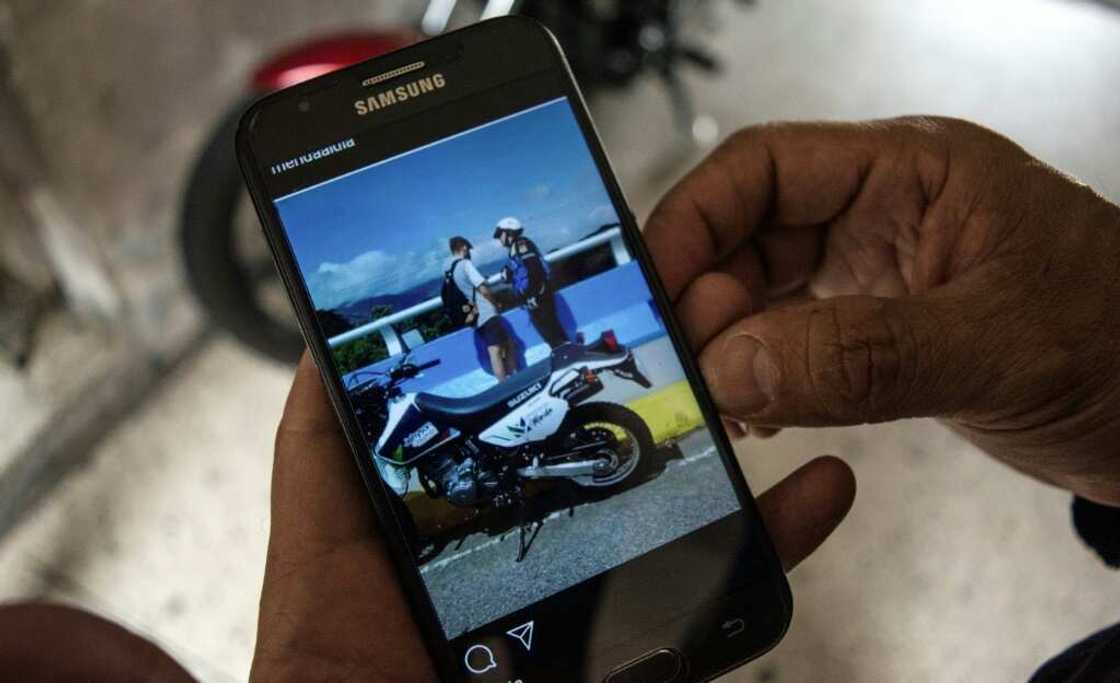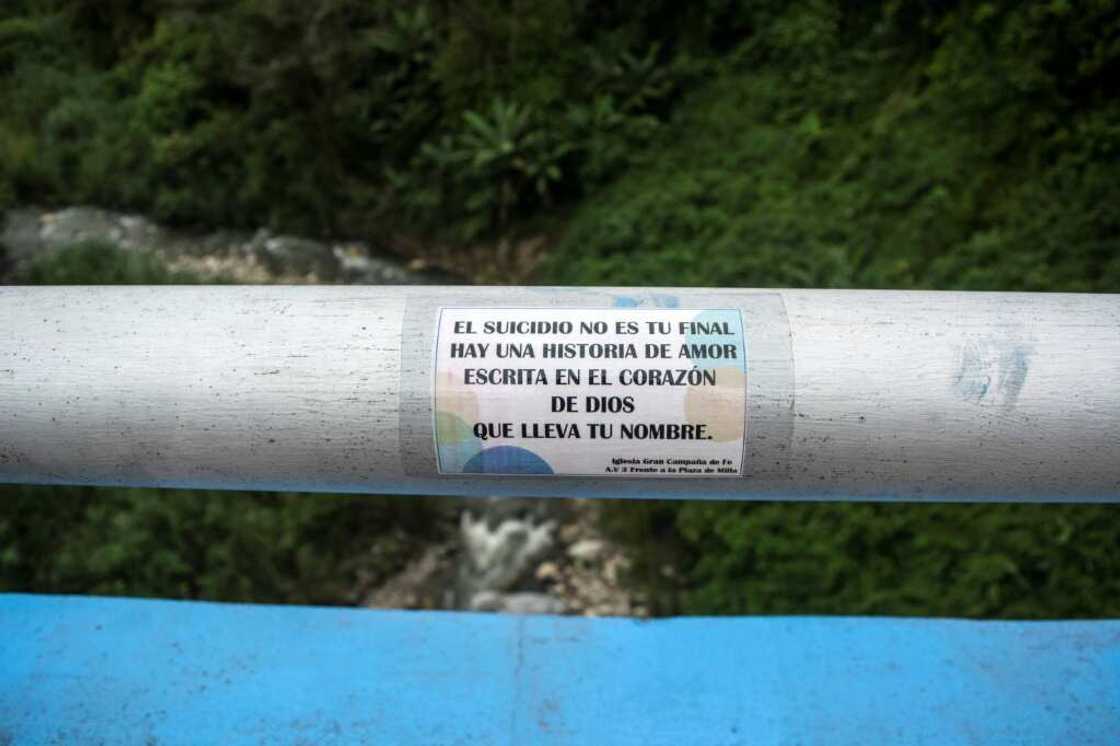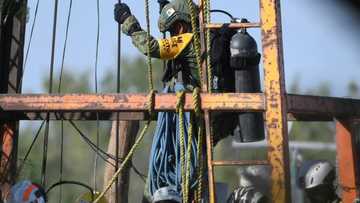Venezuela's suicide epicenter battles further deaths

Source: AFP
PAY ATTENTION: Click “See First” under the “Following” tab to see Legit.ng News on your Facebook News Feed!
Henry La Cruz jumps off his motorbike, darts to a young man and grabs hold of him just before he leaps from a viaduct.
The 42-year-old firefighter who works in the Venezuelan state of Merida, the region of the country with the highest suicide rate, is not always so lucky.
Last year, Venezuela recorded 4.3 suicides per 100,000 people, according to estimates by the Venezuelan Violence Observatory (OVV), but in the western Andean state of Merida that figure was more than double at 9.9.
No studies exist to explain the high incidence of suicide in the peaceful, mountainous state of 860,000 people, where agriculture and tourism fuel the economy.
The Health Ministry recorded 843 suicides, mostly men, in 2016 with 97 of those in Merida, according to the most recent data.
At the end of July, local authorities launched a suicide prevention campaign, offering free specialized assistance.
PAY ATTENTION: Subscribe to Digital Talk newsletter to receive must-know business stories and succeed BIG!
"We need to train society... so that people stop thinking about this as a taboo, so that they lose the fear of mentioning the word suicide," regional legislator Fabiana Santamaria told AFP.
The first step includes giving talks in schools to raise awareness about both suicide and its prevention.
"It's not just telling someone not to try to take their life, it's giving them the tools to live, to fall in love with life."

Source: AFP
Authorities have increased the frequency of patrols at sites with a high risk of suicide attempts.
La Cruz said he was responding to an emergency call about a different potential suicide when he ended up saving the life of the 21-year-old on the viaduct in the state capital, also called Merida.
'Knowing rock bottom'
While he was looking for the other potential victim under the bridge and in the river and vegetation around it, he spotted the young man.
By the time La Cruz got to him, "the siren was going. He turned around and climbed onto the railing."
"I jumped off the (motorbike), threw myself at him and grabbed him. He tried to get away but I pulled him to the sidewalk with all my might."

Source: AFP
The two spoke for two hours before La Cruz convinced him not to end his life.
On a railing on the viaduct, a religious group has taped messages saying: "Suicide is not your end. There is a story in the heart of God that bears your name."
Jau Ramirez, director of the SOMOS LGBTQ+ group, told AFP that "we have discovered that suicidal ideas, or suicide attempts, are very common in groups that are particularly vulnerable" due to their sexual orientation or economic situation.
Depression is one of the key triggers for suicide attempts, says the OVV, which collects information from the press and partial reports from authorities.
Thais Beltran attempted suicide after her husband suddenly left her and their children overnight.
"It was eating me up," the physical therapist said.
She is now working for an NGO helping disabled people and others with suicidal thoughts.
"Knowing what it feels like, knowing rock bottom" is what gives her the expertise to work with vulnerable people, she says, including "knowing what to say, knowing how to listen."
Venezuela's federation of physical therapists has set up a dedicated phone line to offer support but experts say it is not enough given the lack of funding for psychiatric assistance and health centers in Merida.
According to the World Health Organization, one in every 100 deaths worldwide is a suicide.
Source: AFP





